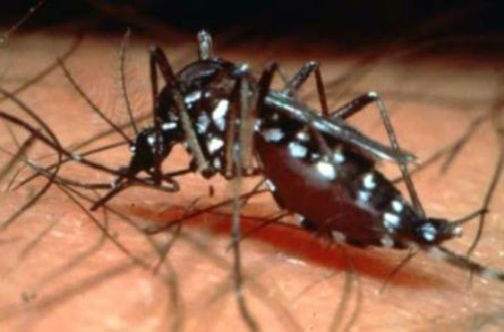The Kingston and St Andrew Health Department has classified 29 areas in the capital city as being at high risk for a dengue outbreak.
The information was provided in a report to yesterday’s meeting of the Kingston and St Andrew Municipal Corporation’s Parish Disaster Preparedness and Public Health Committee.
However, questions about the report, posed by councillors to junior public health officers Caloma Conville and Sabrina Tracey, could not be answered as the department’s Medical Officer of Health Dr Yohance Rodriquez, and Winnifred Meeks, chief public health officer, were not at the meeting.
The high-risk dengue communities listed in the report are: Olympic Gardens, New Haven, Windward Road, August Town, Riverton City, Callaloo Mews, Cassava Piece, Maxfield, Bull Bay, Liguanea, Bay Farm Road, Mountain View, Ackee Walk, Stand Pipe, Gordon Town, Waterhouse, Sandy Park, Majesty Gardens, Taylor Land, Whitfield Town, Rock Hall, Swain Spring, Hope Flats, Belvedere, Salisbury Plain, Mosquito Valley, Mongoose Town, Shooters Hill, and Parks Road.
The report said that the classification (not in risk order) was based on considerations that included the Aedes index, number of cases presented and reported, and the population density of each community.
According to the health department, the likely factors for increased mosquito breeding in the communities are:
* poor piped water supply dependent on stored water which is often stored improperly;
* Heavy vegetation in close proximity, acting as harbourage for mosquitoes;
* Rocky terrain fostering pooled water in rock craters after rainfall;
* Informal communities/settlements;
* Communities in proximity to gullies or drains; and
* Poor refuse management.
The health department said that more than one risk factor may exist in any given community.
Meanwhile, some of the councillors complained that only a few of the 77 schools listed as fogged between January 5, 7, and 12, 2019 in the report were located in the 29 high-risk areas.
Councillor Andrew Swaby (PNP, Vineyard Town Division) asked deputy chairman of the committee, Councillor Beverly Prince, if she was comfortable that questions about the hot spots could not be answered.
“There is an outbreak. Do we have to wait one month for answers or are we avoiding a discussion?” he asked.
Councillor Dennis Gordon (PNP, Maxfield Division) pointed out that although his division was one of the high-risk areas, only two schools — Maxfield Park Primary and Rousseau Primary — were among the list of 77 schools that had been fogged.
Councillor Nenna Wilson (PNP, Hagley Park Division) complained that St Jude’s Primary and Tarrant schools in her division, which had “terrible mosquito problems”, were not on the list of schools that had been fogged.
Councillor Audrey Smith Facey (PNP, Payne Land Division) said that two children had died in Brownsland in her division, from suspected cases of dengue. She wanted to know when Crescent Road, St Josephs Road, Brotherton Avenue, Palm Grove Housing Scheme, and McKoy Lane, which she said were high-risk areas, would be fogged.
The councillors said that they were disrespected by the absence of Dr Rodriquez and Meeks from the meeting.
Dr Sherine Huntley Jones, medical entomologist and programme manager for vector control at the Ministry of Health, told the Jamaica Observer late afternoon that Dr Rodriquez and Meeks “were pulled away for an activity we were doing on the ground”.
Dr Huntley Jones also said she would “ensure” that each member of parliament and councillor was made aware of what is to be done.










